Hola and welcome to Where on Planet Earth! In case you got here by accident and are not yet a subscriber, sign up below! For more visuals on our travels follow us on IG @whereonplanetearth
I used to think no country could love America more than America loves America.
Turns out I was wrong.
Kosovo *looooooves* America, without any reservations.
Kosovo is without a doubt the most pro-American country I have ever been to. In the many many years of traveling I have never seen a place with so many USA references.
I mean it when I say: America is everywhere in Kosovo.
Even if you knew nothing of the history between the two countries it would be completely impossible to visit Kosovo and not wonder what the heck is going on with the USA obsession. And even if you knew about the history between the two countries I bet you would still be surprised at the amount of America in your face. I definetely was on our first night in Pristina, the capital, when we were welcomed by a giant US flag poster when we randomly stumbled into a concert!

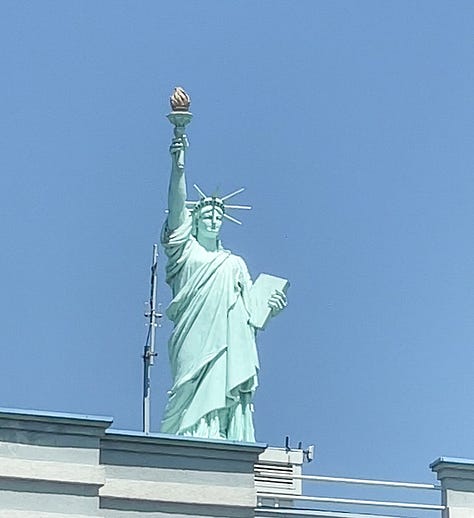
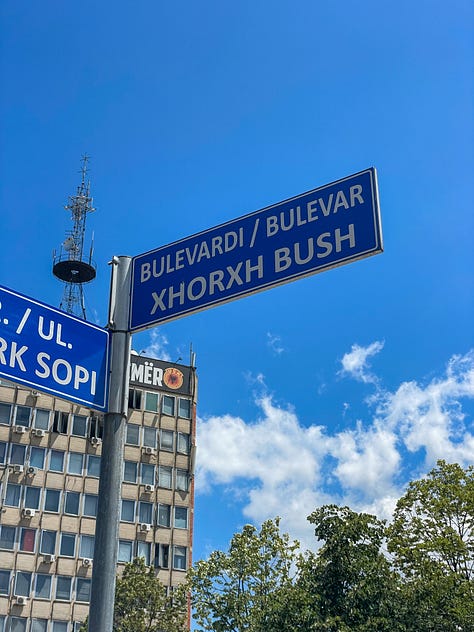


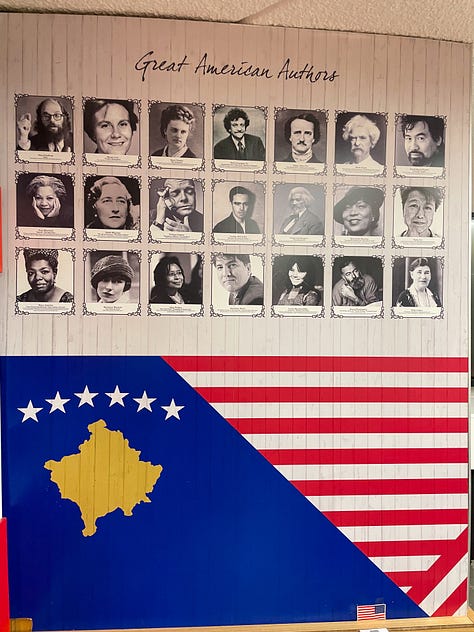
There is the huge statue of Bill Clinton, the street named after George W. Bush, the pantsuit store named Hillary, and the “American” library with the Golden Gate pic on the walls. There is the mini statue of liberty, the taxis named “Dallas”, and the American flag waving in every corner. There is a song - and I am not making this up - called THANK YOU USA. Please do yourself a favor and check out the video. The chorus goes as you would expect:
Thank you USA
You are my best friend
You are the peace keeper
You are the legend
In Pristina, the capital of Kosovo, they used to celebrate the 4th of July - the USA independence day! - with a huge concert until the American government told them they had a credible threat from ISIS and that they better stop doing that.
In summary: Kosovo loves the United States. But, I’d bet most Americans couldn’t even point Kosovo in a map. Many would probably not even be aware of the USA involvement in several wars in the region. The truth is that the United States is so self-obsessed that there isn’t a ton of common knowledge around the many - and I mean many - meddlings it has done around the world. Sadly, most are not a positive story, and their stated goals of “freedom” or “democracy” are not often their true goals. The majority of the countries that received these interventions didn’t welcome them, and many actively don’t appreciate the Unites States because of it, or are simply indifferent about it.
And then, there is Kosovo; the American lover.
The truth is that their obsession makes sense. Let me try to explain why.

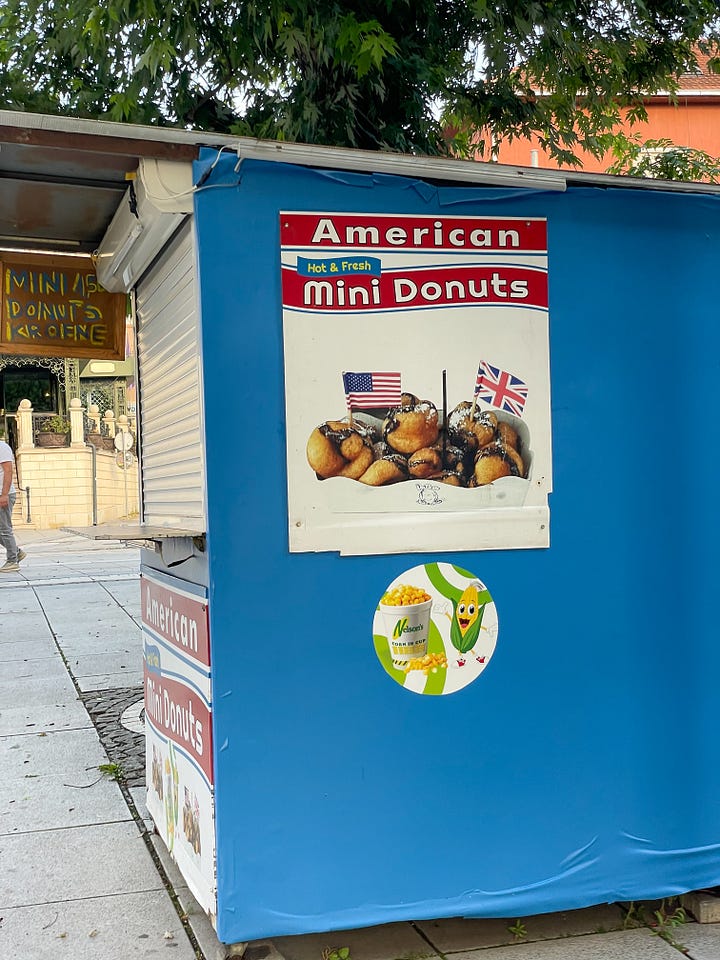
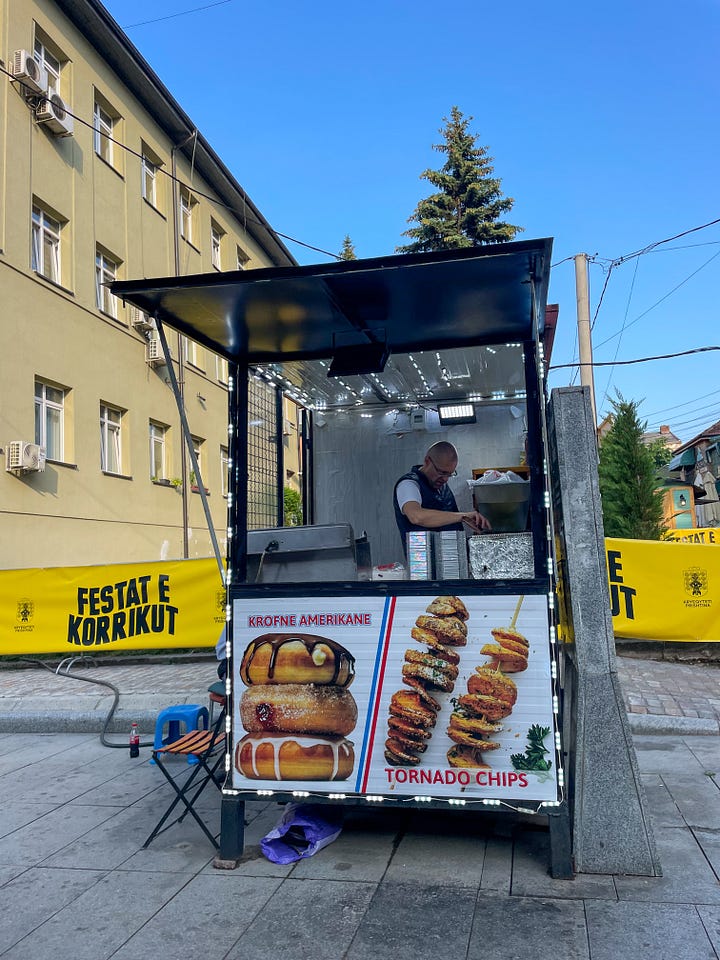
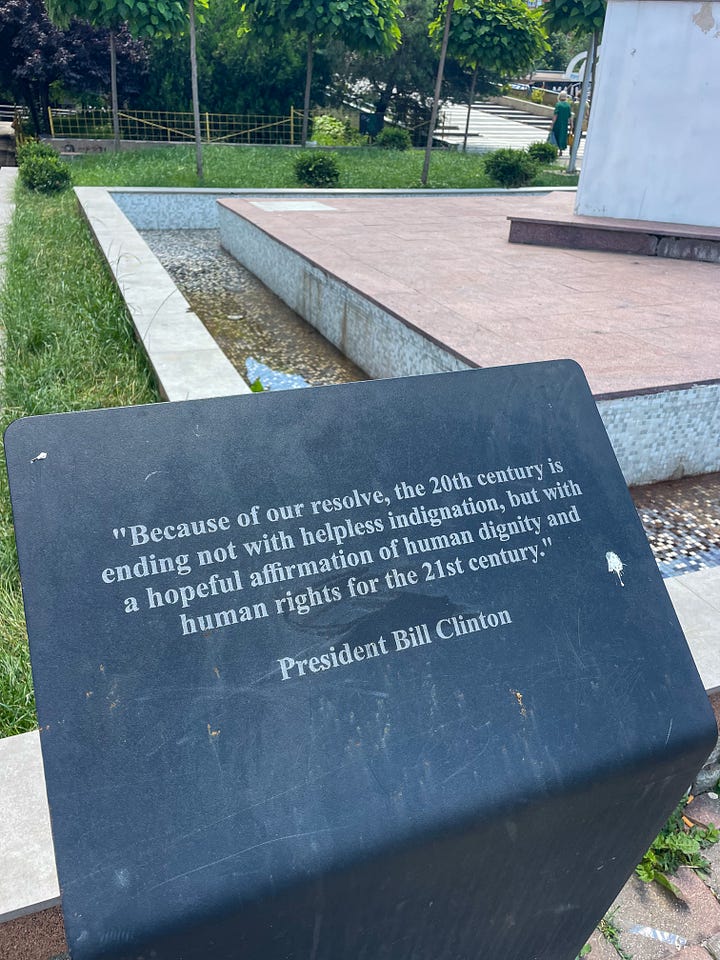
It’s hard to succinctly describe the history in this region because of the complex religion and ethnic clashes throughout time. But, to understand any piece of it it’s key to get a high level view of its population mosaic.
More than a dozen ethnicities are present in the region, including Albanians, Bosniaks, Macedonians, Montenegrins, Serbs, Romanians, Bulgarians, and Slovenes, to name a few. And there is a mix match of religions too, mainly Eastern Orthodox, Islam, and Roman Catholic. None of it is clearly delineated by country borders, which has led to many conflicts between majority and minority groups throughout history.
Here is a pretty simplistic map showing the main ethnicity per area, just so you get an idea of the complexity (just keep in mind that the map is not entirely accurate, as for instance it notes Montegrins as Serbs instead of their own ethnicity, but you get the idea).
Kosovo is that small land-lock country in between many different colors. The country is majority Albanian, which has been the root of its conflicts with Serbia and its mostly Serb population since the entire region was part of the Ottoman Empire. During that time, in 1877, many Albanians were expelled from (what is today) Serbia and into (what is today) Kosovo, and this was followed by attacks on Serbs who lived in Kosovo. Since then there have been constant conflicts between the two regions.
When Yugoslavia was formed Kosovo became part of that Serb-dominated territory, first as an autonomous province of Serbia and eventually as its own province with additional rights. Regardless of its status, Kosovo was always linked to Serbia and never an actual republic of Yugoslavia, which made it impossible for them to leave Yugoslavia legally. During those years nationalism of any kind was strictly forbidden and persecuted, but still these movements persisted and for that and many other reasons in 1991 the Yugoslav Wars erupted. These were a series of separate but related ethnic conflicts originating from the different republics of Yugoslavia wanting their independence. The wars lasted a decade, killed at least 140,000 people, and were marked by horrific war crimes including genocide and mass rape.
The Kosovo War was the last of these independence conflicts. By that point three previous wars had been fought by the Yugoslav Army, and a lot of blood had been shed, including in the Bosnian genocide. Ultimately, the clash between the Kosovo Liberation Army and the Yugoslav Army lasted only a year before NATO, with U.S. at the helm, intervened to end it. They bombed Yugoslavia for over two months until an agreement was reached and the Yugoslav forces left Kosovo.
A lot has been said about the decision to intervene and whether it was the right thing to do or not. It’s, as everything, quite complicated. This was the first time NATO forces were used offensively, and to attack a sovereign nation to end a civil war. Whether there was legitimacy under international law to do this is questioned. NATO also failed to gain authorization from the United Nation Security Council. At the same time, the bombing brought an end to the ethnic cleansing against Kosovo’s Albanian population and also led to the downfall of Yugoslavia’s government, which is widely seen as responsible for horrific war crimes.
Ultimately, this intervention paved the way for Kosovo’s independence a decade later. But, to this day Serbia considers Kosovo part of its territory, and plenty of countries don’t recognize Kosovo’s sovereignty. Many of them due to their own domestic independence movements, such as Spain with Catalonia and Argentina with the Falkland Islands. Basically, they don’t want to leave a precedence and give those domestic movements any more power. There are other reasons too, mainly that Kosovo declared independence unilaterally (without an agreement with Serbia).
So, ultimately, Kosovo is still in limbo. Its half-way status prevents its citizens to travel to many places as their passport are not considered valid, and they can’t even think about joining the EU or NATO. But, day to day life continues, as it does in so many places struggling with one thing or the other. While walking the streets of Pristina on a Monday I was struck by the amount of people out and about and assumed it was a holiday of some kind, but when asked I was told simply that no, it wasn’t a holiday, it was just all the Kosovans who had left the country because of the war or better opportunities, and were coming back to spend the summer with their families. Today remittances account for 18% of Kosovo’s GDP.
The truth is that without the United States it’s hard to know what would be of Kosovo today.
So there you go, their loves makes sense.
Their biggest crush is with Bill Clinton and George W. Bush, the former because he was the one in charge when the NATO bombings happened and the later because he was the one who recognized their independence. There is one notable exception with their American love though: Trump. They didn’t like the guy, and who can blame them? I was happily surprised to learn that their love has some boundaries :)


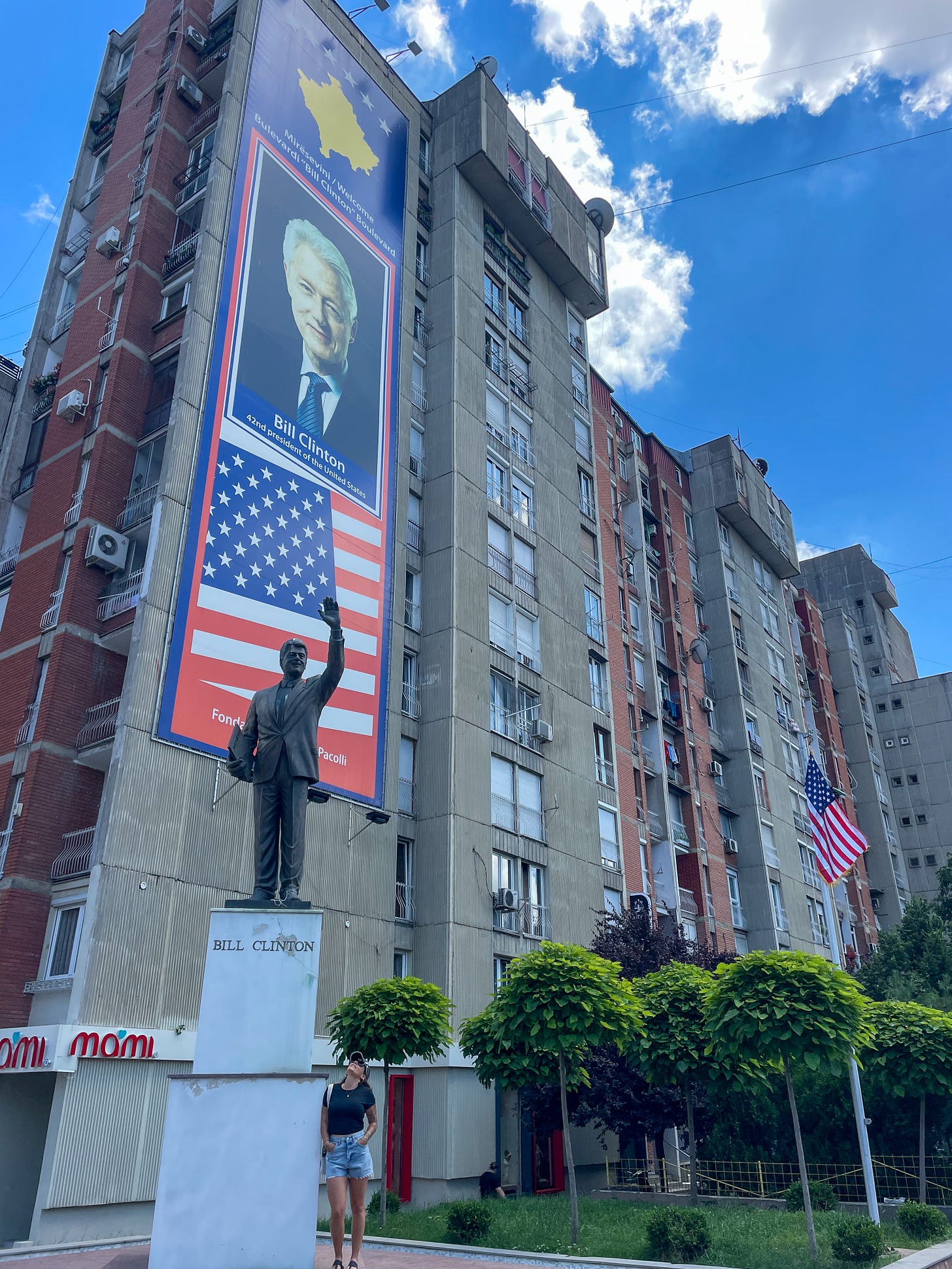



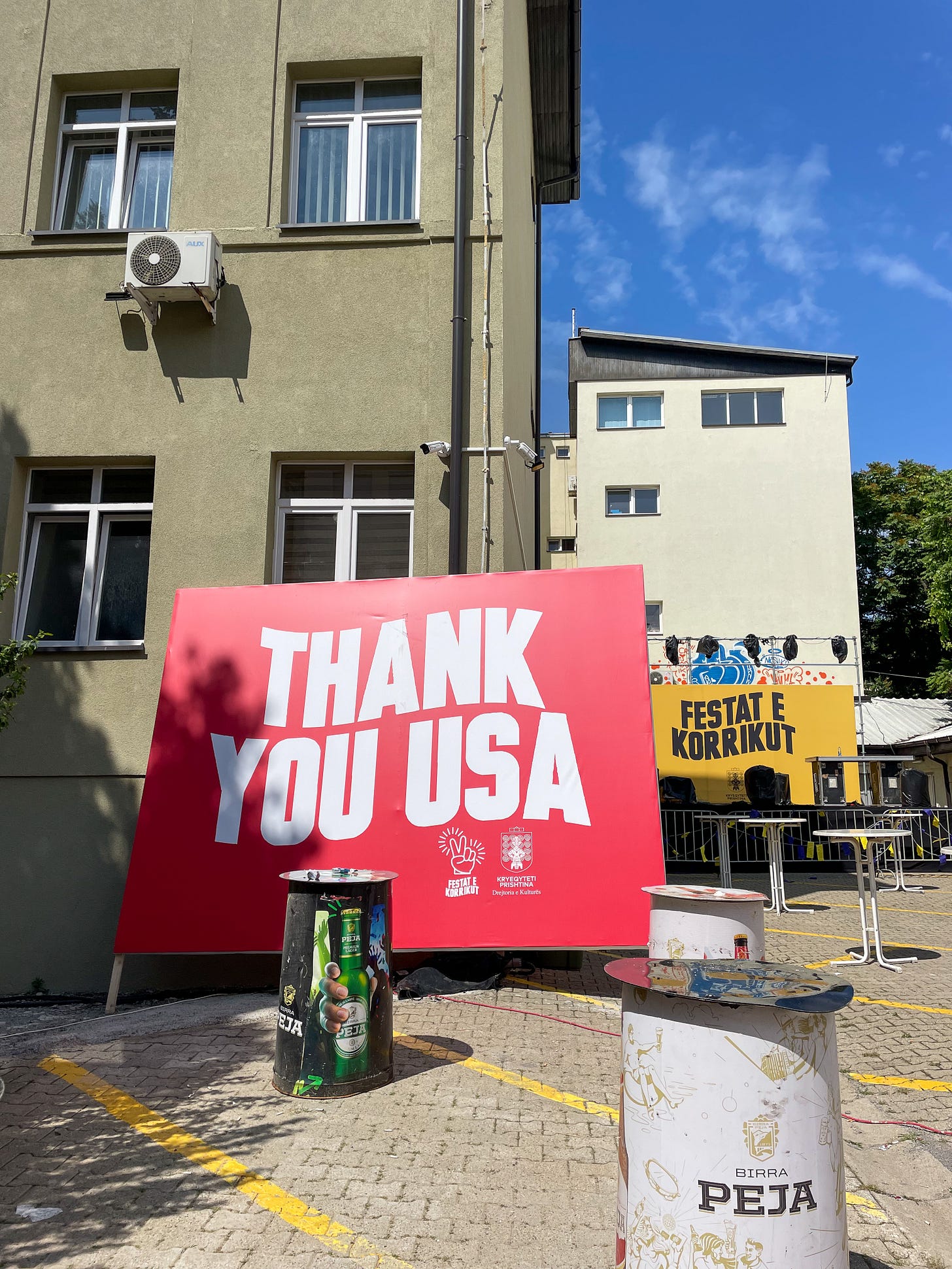
As always very interesting, accurate, and excellent writing. Please keep giving us your excellent journals. Thank you.